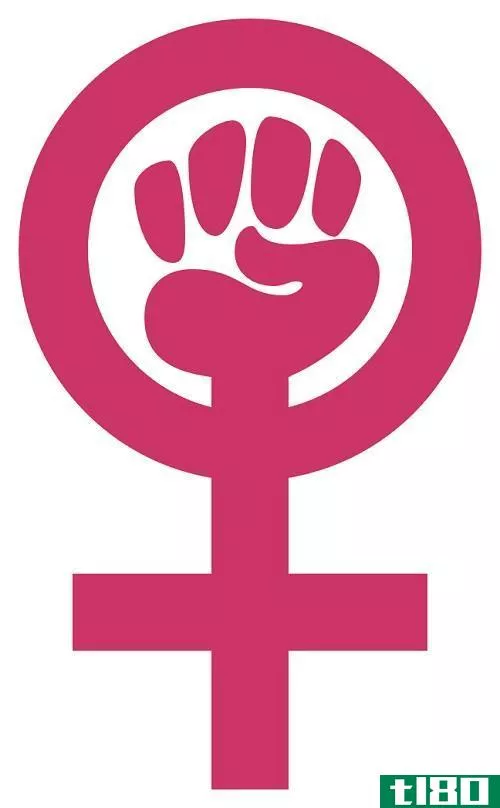黑石评论与妇女权利
19世纪,美国和英国妇女的权利或缺失在很大程度上取决于威廉·布莱克斯通(William Blackstone)的评论,该评论将已婚妇女和男子定义为法律下的一个人。威廉·布莱克斯通在1765年写道:
 By marriage, the husband and wife are one person in law: that is, the very being or legal existence of the woman is suspended during the marriage, or at least is incorporated and consolidated into that of the husband; under whose wing, protection, and cover, she performs every thing; and is therefore called in our law-French a feme-covert, foemina viro co-operta; is said to be covert-baron, or under the protection and influence of her husband, her baron, or lord; and her condition during her marriage is called her coverture. Upon this principle, of a union of person in husband and wife, depend almost all the legal rights, duties, and disabilities, that either of them acquire by the marriage. I speak not at present of the rights of property, but of such as are merely personal. For this reason, a man cannot grant anything to his wife, or enter into covenant with her: for the grant would be to suppose her separate existence; and to covenant with her, would be only to covenant with himself: and therefore it is also generally true, that all compacts made between husband and wife, when single, are voided by the intermarriage. A woman indeed may be attorney for her husband; for that implies no separation from, but is rather a representation of, her lord. And a husband may also bequeath any thing to his wife by will; for that cannot take effect till the coverture is determined by his death. The husband is bound to provide his wife with necessaries by law, as much as himself; and, if she contracts debts for them, he is obliged to pay them; but for anything besides necessaries he is not chargeable. Also if a wife elopes, and lives with another man, the husband is not chargeable even for necessaries; at least if the person who furnishes them is sufficiently apprized of her elopement. If the wife be indebted before marriage, the husband is bound afterwards to pay the debt; for he has adopted her and her circumstances together. If the wife be injured in her person or her property, she can bring no action for redress without her husband's concurrence, and in his name, as well as her own: neither can she be sued without making the husband a defendant. There is indeed one case where the wife shall sue and be sued as a feme sole, viz. where the husband has abjured the realm, or is banished, for then he is dead in law; and the husband being thus disabled to sue for or defend the wife, it would be most unreasonable if she had no remedy, or could make no defence at all. In criminal prosecutions, it is true, the wife may be indicted and punished separately; for the union is only a civil union. But in trials of any sort they are not allowed to be evidence for, or against, each other: partly because it is impossible their testimony should be indifferent, but principally because of the union of person; and therefore, if they were admitted to be witness for each other, they would contradict one maxim of law, "nemo in propria causa testis esse debet"; and if against each other, they would contradict another maxim, "nemo tenetur seipsum accusare." But, where the offence is directly against the person of the wife, this rule has been usually dispensed with; and therefore, by statute 3 Hen. VII, c. 2, in case a woman be forcibly taken away, and married, she may be a witness against such her husband, in order to convict him of felony. For in this case she can with no propriety be reckoned his wife; because a main ingredient, her consent, was wanting to the contract: and also there is another maxim of law, that no man shall take advantage of his own wrong; which the ravisher here would do, if, by forcibly marrying a woman, he could prevent her from being a witness, who is perhaps the only witness to that very fact. In the civil law the husband and the wife are considered as two distinct persons, and may have separate estates, contracts, debts, and injuries; and therefore in our ecclesiastical courts, a woman may sue and be sued without her husband. But though our law in general considers man and wife as one person, yet there are some instances in which she is separately considered; as inferior to him, and acting by his compulsion. And therefore any deeds executed, and acts done, by her, during her coverture, are void; except it be a fine, or the like manner of record, in which case she must be solely and secretly examined, to learn if her act be voluntary. She cannot by will devise lands to her husband, unless under special circumstances; for at the time of making it she is supposed to be under his coercion. And in some felonies, and other inferior crimes, committed by her through constraint of her husband, the law excuses her: but this extends not to treason or murder. The husband also, by the old law, might give his wife moderate correction. For, as he is to answer for her misbehaviour, the law thought it reasonable to intrust him with this power of restraining her, by domestic chastisement, in the same moderation that a man is allowed to correct his apprentices or children; for whom the master or parent is also liable in some cases to answer. But this power of correction was confined within reasonable bounds, and the husband was prohibited from using any violence to his wife, aliter quam ad virum, ex causa regiminis et castigationis uxoris suae, licite et rationabiliter pertinet. The civil law gave the husband the same, or a larger, authority over his wife: allowing him, for some misdemeanors, flagellis et fustibus acriter verberare uxorem; for others, only modicam castigationem adhibere. But with us, in the politer reign of Charles the second, this power of correction began to be doubted; and a wife may now have security of the peace against her husband; or, in return, a husband against his wife. Yet the lower rank of people, who were always fond of the old common law, still claim and exert their ancient privilege: and the courts of law will still permit a husband to restrain a wife of her liberty, in the case of any gross misbehaviour. These are the chief legal effects of marriage during the coverture; upon which we may observe, that even the disabilities which the wife lies under are for the most part intended for her protection and benefit: so great a favourite is the female sex of the laws of England.
By marriage, the husband and wife are one person in law: that is, the very being or legal existence of the woman is suspended during the marriage, or at least is incorporated and consolidated into that of the husband; under whose wing, protection, and cover, she performs every thing; and is therefore called in our law-French a feme-covert, foemina viro co-operta; is said to be covert-baron, or under the protection and influence of her husband, her baron, or lord; and her condition during her marriage is called her coverture. Upon this principle, of a union of person in husband and wife, depend almost all the legal rights, duties, and disabilities, that either of them acquire by the marriage. I speak not at present of the rights of property, but of such as are merely personal. For this reason, a man cannot grant anything to his wife, or enter into covenant with her: for the grant would be to suppose her separate existence; and to covenant with her, would be only to covenant with himself: and therefore it is also generally true, that all compacts made between husband and wife, when single, are voided by the intermarriage. A woman indeed may be attorney for her husband; for that implies no separation from, but is rather a representation of, her lord. And a husband may also bequeath any thing to his wife by will; for that cannot take effect till the coverture is determined by his death. The husband is bound to provide his wife with necessaries by law, as much as himself; and, if she contracts debts for them, he is obliged to pay them; but for anything besides necessaries he is not chargeable. Also if a wife elopes, and lives with another man, the husband is not chargeable even for necessaries; at least if the person who furnishes them is sufficiently apprized of her elopement. If the wife be indebted before marriage, the husband is bound afterwards to pay the debt; for he has adopted her and her circumstances together. If the wife be injured in her person or her property, she can bring no action for redress without her husband's concurrence, and in his name, as well as her own: neither can she be sued without making the husband a defendant. There is indeed one case where the wife shall sue and be sued as a feme sole, viz. where the husband has abjured the realm, or is banished, for then he is dead in law; and the husband being thus disabled to sue for or defend the wife, it would be most unreasonable if she had no remedy, or could make no defence at all. In criminal prosecutions, it is true, the wife may be indicted and punished separately; for the union is only a civil union. But in trials of any sort they are not allowed to be evidence for, or against, each other: partly because it is impossible their testimony should be indifferent, but principally because of the union of person; and therefore, if they were admitted to be witness for each other, they would contradict one maxim of law, "nemo in propria causa testis esse debet"; and if against each other, they would contradict another maxim, "nemo tenetur seipsum accusare." But, where the offence is directly against the person of the wife, this rule has been usually dispensed with; and therefore, by statute 3 Hen. VII, c. 2, in case a woman be forcibly taken away, and married, she may be a witness against such her husband, in order to convict him of felony. For in this case she can with no propriety be reckoned his wife; because a main ingredient, her consent, was wanting to the contract: and also there is another maxim of law, that no man shall take advantage of his own wrong; which the ravisher here would do, if, by forcibly marrying a woman, he could prevent her from being a witness, who is perhaps the only witness to that very fact. In the civil law the husband and the wife are considered as two distinct persons, and may have separate estates, contracts, debts, and injuries; and therefore in our ecclesiastical courts, a woman may sue and be sued without her husband. But though our law in general considers man and wife as one person, yet there are some instances in which she is separately considered; as inferior to him, and acting by his compulsion. And therefore any deeds executed, and acts done, by her, during her coverture, are void; except it be a fine, or the like manner of record, in which case she must be solely and secretly examined, to learn if her act be voluntary. She cannot by will devise lands to her husband, unless under special circumstances; for at the time of making it she is supposed to be under his coercion. And in some felonies, and other inferior crimes, committed by her through constraint of her husband, the law excuses her: but this extends not to treason or murder. The husband also, by the old law, might give his wife moderate correction. For, as he is to answer for her misbehaviour, the law thought it reasonable to intrust him with this power of restraining her, by domestic chastisement, in the same moderation that a man is allowed to correct his apprentices or children; for whom the master or parent is also liable in some cases to answer. But this power of correction was confined within reasonable bounds, and the husband was prohibited from using any violence to his wife, aliter quam ad virum, ex causa regiminis et castigationis uxoris suae, licite et rationabiliter pertinet. The civil law gave the husband the same, or a larger, authority over his wife: allowing him, for some misdemeanors, flagellis et fustibus acriter verberare uxorem; for others, only modicam castigationem adhibere. But with us, in the politer reign of Charles the second, this power of correction began to be doubted; and a wife may now have security of the peace against her husband; or, in return, a husband against his wife. Yet the lower rank of people, who were always fond of the old common law, still claim and exert their ancient privilege: and the courts of law will still permit a husband to restrain a wife of her liberty, in the case of any gross misbehaviour. These are the chief legal effects of marriage during the coverture; upon which we may observe, that even the disabilities which the wife lies under are for the most part intended for her protection and benefit: so great a favourite is the female sex of the laws of England.来源
威廉·布莱克斯通。英国法律评论。第1卷(1765年),第442-445页。
- 发表于 2021-10-04 20:40
- 阅读 ( 197 )
- 分类:历史
你可能感兴趣的文章
平等法案真的会有什么作用吗?
...,妇女在公共场所也将首次受到保护,不受歧视。什么是评论家说(critics saying)?一些批评者认为,保护妇女的行为实际上侵犯了妇女的权利。许多共和党人指出,根据《平等法》,不能根据**的性别特征,拒绝**进入更衣室或洗...
- 发布于 2021-05-14 00:48
- 阅读 ( 195 )
女权主义(feminism)和妇女主义(womanism)的区别
今天,妇女权利、两性平等和生殖权利是国际社会议程上的优先事项。然而,情况并非总是如此。妇女总是为自己的权利而战,许多妇女继续这样做,因为她们在世界上一些地区仍然受到歧视,并屈从于**。例如,妇女和儿...
- 发布于 2021-06-25 01:04
- 阅读 ( 217 )
女权主义者(feminist)和均衡器(equalist)的区别
...有与**同等的权利和机会。 相反,平等主义者认为,注重妇女权利而不是普遍权利意味着含蓄地断言妇女比男子更重要。因此,平等主义者为所有人争取平等的权利,不分性别、种族、性别、年龄和身体特征。因此,虽然这两个...
- 发布于 2021-06-25 17:35
- 阅读 ( 198 )
女权主义(feminism)和两性平等(gender equality)的区别
...平等。 女权主义的普遍应用是在教育和职业机会方面为妇女争取与男子平等的机会。例如,一些女权运动一直在争取妇女的选举权、工作权、与男子同工同酬权和担任公职权。他们还一直在推动在财产所有权、公平工资、婚姻...
- 发布于 2021-06-25 23:19
- 阅读 ( 381 )
女权主义(feminism)和妇女主义(womanism)的区别
女权主义与女权主义的主要区别在于,女权主义关注妇女的权利和机会,而女权主义关注并反对性别歧视和种族主义。 女权主义是指在男女平等的基础上倡导妇女权利的一系列社会政治运动和意识形态。另一方面,女权主义是...
- 发布于 2021-07-02 02:49
- 阅读 ( 411 )
女权主义者(feminist)和均衡器(equalist)的区别
...女权主义和平等主义的区别在于,女权主义是一场致力于妇女权利的女权运动,在这场运动中,妇女和女孩应该在更全面、更公正的社区享有与男子平等的权利和特权。因此,平等支持我们享有平等权利的公平和平等的社区。虽...
- 发布于 2021-07-11 06:38
- 阅读 ( 175 )
玛丽·沃斯通克拉夫特:生活
...力量。 玛丽·沃斯通克拉夫特(Mary Wollstonecraft)的思想评论员从她自己的时代一直到现在都在关注她自己的经历对她的思想产生影响的方式。她主要通过小说和间接引用来检验这种影响对自己作品的影响。同意玛丽·沃尔斯顿...
- 发布于 2021-09-04 17:45
- 阅读 ( 260 )
过去和现在争取妇女权利的斗争
“妇女权利”的含义随着时间和文化的不同而有所不同。今天,对于什么是妇女权利仍然缺乏共识。有人会说,女性控制家庭规模的能力是女性的一项基本权利。另一些人则认为,女性的权利属于工作场所平等或以与男性相同...
- 发布于 2021-09-04 19:39
- 阅读 ( 162 )
塞内卡瀑布1848年妇女权利公约的历史
...讲,该决议的通过才受到质疑。第二天的闭幕式包括阅读黑石集团关于妇女地位的评论,以及弗雷德里克·道格拉斯(Frederick Douglass)等人的演讲。Lucretia Mott提出的决议一致通过: "The speedy success of our cause depends upon the zealous a...
- 发布于 2021-09-11 20:18
- 阅读 ( 282 )
全国妇女权利公约
...的其他区域性女权大会也相继召开。那次会议的决议呼吁妇女选举权(投票权),后来的大会也包括这一呼吁。但每次会议都包括其他妇女权利问题。 1850次会议是第一次被认为是一次全国性的会议。这次会议是在九名妇女和...
- 发布于 2021-09-11 20:19
- 阅读 ( 236 )















